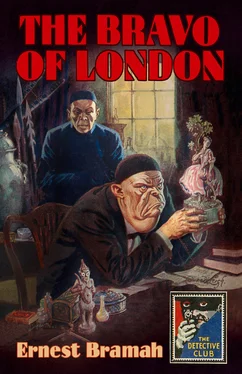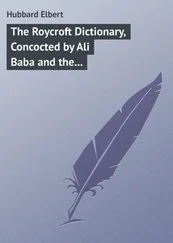‘True, O cadi,’ admitted Nickle lightly. ‘People aren’t worth sticking the manure fork into—present company included—but it’s frequently temptatious. Proceed, effendi.’
‘The chap who has been at Tapsfield already was a wash-out and I’ve had to drop him. He’ll never come to any good, Nickle—no imagination. Now that’s where you should be able to put something through, and I have confidence in you. You’re a very convincing liar.’
‘You are extremely kind, Master,’ replied Nickle. ‘What had your dud friend got to say about it?’
‘He came back sneeping that it was impossible even to get in anywhere there because they are so suspicious of strangers.’
‘To do with the mill, I suppose?’
‘Of course—what else? He couldn’t stay a night—not a bed to be had anywhere for love or money unless someone can guarantee you bona fide. The fool fish simply dropped in on them with a bag of golf clubs—and there wasn’t a course within five miles. You’ll have to think out something brighter, Nickle.’
‘Leave that to me. Just exactly what do you want to know, Joolby?’
‘Everything that there is to be found out—position, weaknesses, precautions, routine, delivery and despatch: the whole business. And particularly any of the people who are open to be got at with some sort of inducement. But for God’s sake—’
‘I beg your pardon?’
‘No need to, Nickle. I only want to emphasise that whatever you do, not a shadow of suspicion must be risked. We haven’t decided yet on what lines the thing will go through and we can’t have any channel barred. I can give you a fortnight.’
‘Thanks; I shall probably take a month. And it’s understood to be five per cent on the clean-up and all exes meanwhile?’
‘Reasonable expenses, Nickle. You can’t spend much in a backwash like this Tapsfield.’
‘My expenses always are reasonable—I mean there is always a reason for them. But I notice that you don’t kick at the other item. That doesn’t look as if you were exactly optimistic of striking a gold mine, Joolby.’
‘In your place I might have thought that, but I shouldn’t have said it. Now I know that you will make it up in exes. Well, let me tell you this, Mr Nickle: no, on the whole I won’t. But what should you say if I hinted not at hundreds or thousands but millions?’
‘I should say much the same as the duchess did—“Oh, Hell, leave my leg alone!”’ languidly admitted Mr Nickle.
The road from Stanbury Junction to Tapsfield was agreeably winding—assuming, of course, that you were at the time susceptible to the graces of nature and not hurrying, for instance, to catch a train—pleasantly shady for such a day as this, and attractively provided, from the leisurely wayfarer’s point of view, with a variety of interesting features. For one stretch it fell in with the vulgarly babbling little river Vole and for several furlongs they pursued an amicable course together, until the Vole, with a sudden flirt like the misplaced coquetry of a gawky wench, was half way across a meadow and although it made some penitent advances to return, the road declined to make it up again and even turned away so that thereafter they meandered on apart: a portentous warning to the numerous young couples who strolled that way on summer evenings, had they been in the mood to profit by the instance. Its place was soon taken by a lethargic, weed-clogged dyke, a very different stream but profuse of an engaging medley of rank grass and flowers—tall bulrushes and swaying sedge, pale flags, saffron kingcups and incredibly artificial-looking pink and white water-lilies, and the sure resort of countless dragonflies of extraordinary agility and brilliance. This channel at one point gave occasion for a moss-grown bridge whereon the curious might inform themselves by the authority of a weather-beaten sign that while the road powers of the county of Sussex claimed the bridge and all that appertained to it, they expressly disclaimed liability for any sort of accident or ill that might be experienced there, and in fact held you strictly responsible and answerable in amercement.
Everywhere was peaceful shade and a cool green smell and the assurance that anything that was happening somewhere else didn’t really matter. A few small, substantial clouds, white and rotund like the puffs of smoke from a cannon’s mouth in an old-type print, floated overhead but imposed on no one to the extent of foretelling rain. Actually, it was the phenomenally dry summer of 1921.
The single pedestrian who had come that way when the 3.27 down train steamed on appeared to be amenable to these tranquil influences, for he continually loitered and looked about, but the frequency with which he took out his watch and the alert expectancy of his backward glances would soon have discounted the impression of aimless leisure had there been anyone to observe his movements. And, in truth, nothing could have been further from casualness or lack of purpose than this inaction, for on that day, at that hour and in that place, the first essential move was being made in a design so vast and far-reaching that the whole future course of civilization might well hang on its issue. So might one disclose a tiny rill in the uplands of Thibet—and thousands of miles away the muddy yellow waters of the surging Whang Ho obliterate an inoffensive province.
Presently, following the same route, the distant figure of another pedestrian had come into sight, and swinging along the road at a fine resolute gait (indicative perhaps, since he wore a clerical garb, of robust Christianity) promised very soon to overtake the laggard. It is only reasonable to assume that in his case there was less inducement to examine the surroundings, for while the first could be dismissed at a glance as a stranger to those parts, the second was the Rev. Octavius Galton, vicar of Tapsfield, who, as everyone could tell you, paid a weekly visit on that day to an outlying hamlet with its little tin mission hall, straggling at least a mile beyond the Junction.
With the first appearance of this new character on the scene the behaviour of the loitering man underwent a change—trifling indeed, but not without significance. His progress was still slow, he continued to take interest in the unfolding details of his way, but he studiously refrained from looking round, and his watch had ceased to concern him. It was, if one would hazard a speculative shot, as though something that he had been expecting had happened now and he was prepared to play a part in the next development.
‘Good afternoon,’ called out the vicar as he went past—he conscientiously greeted every wayfarer encountered on his rounds, tramp or esquire, and few were so churlish as to be unresponsive.
‘Glorious weather, isn’t it?—though of course rain is really needed.’ The after-thought came from over his shoulder, for the Rev. Octavius did not carry universal neighbourliness to the extent of encouraging prolonged wayside conversation.
‘Good afternoon,’ replied the stranger, quite as genially. ‘Yes, isn’t it? Splendid.’
He made no attempt to enlarge the occasion and to all appearance the incident was over. But just when it would have been, Mr Galton heard a sharp exclamation—the instinctive note of surprise—and turned to see the other in the act of stooping to pick up some object.
‘I don’t suppose this is likely to be yours’—he had stopped automatically and the finder had quickened his pace to join him—‘but if you live in these parts you might hear who has lost it. Looks more like a woman’s purse, I should say.’
Читать дальше












